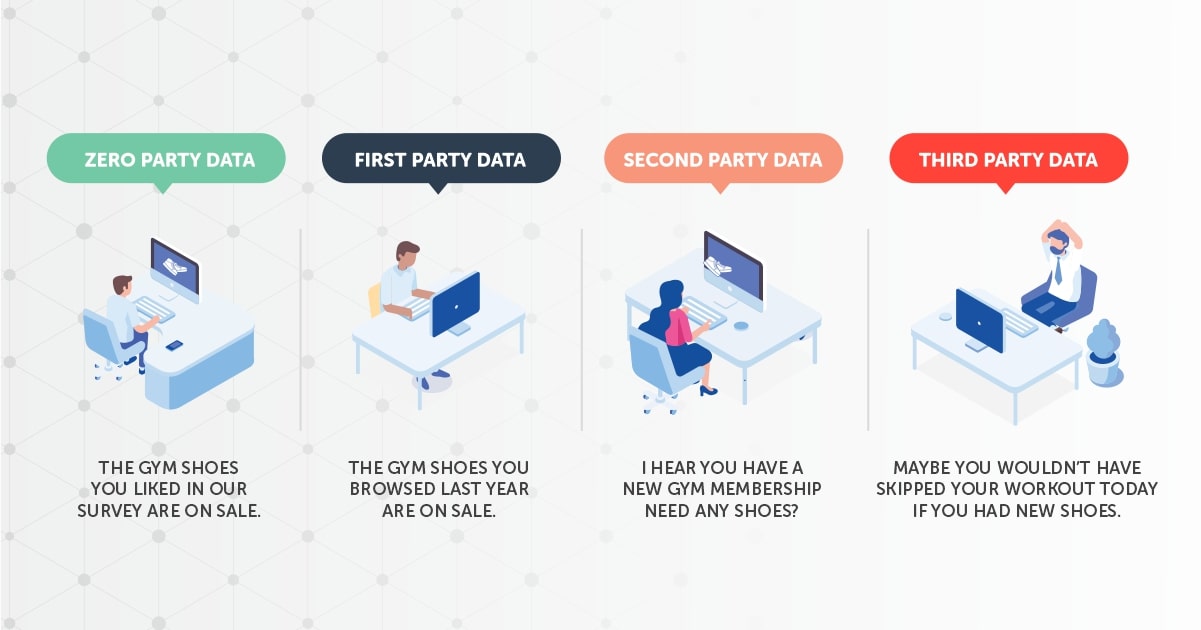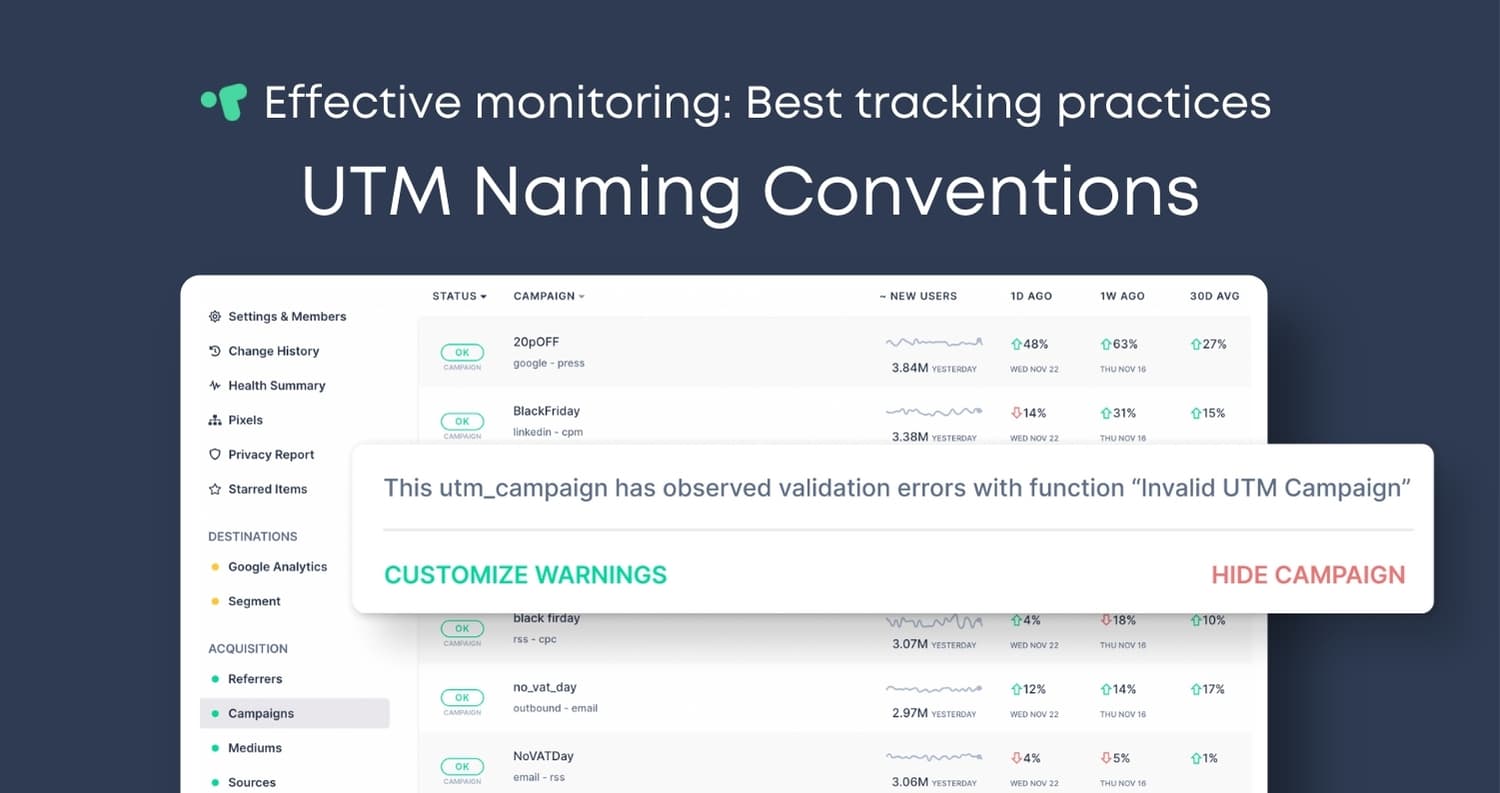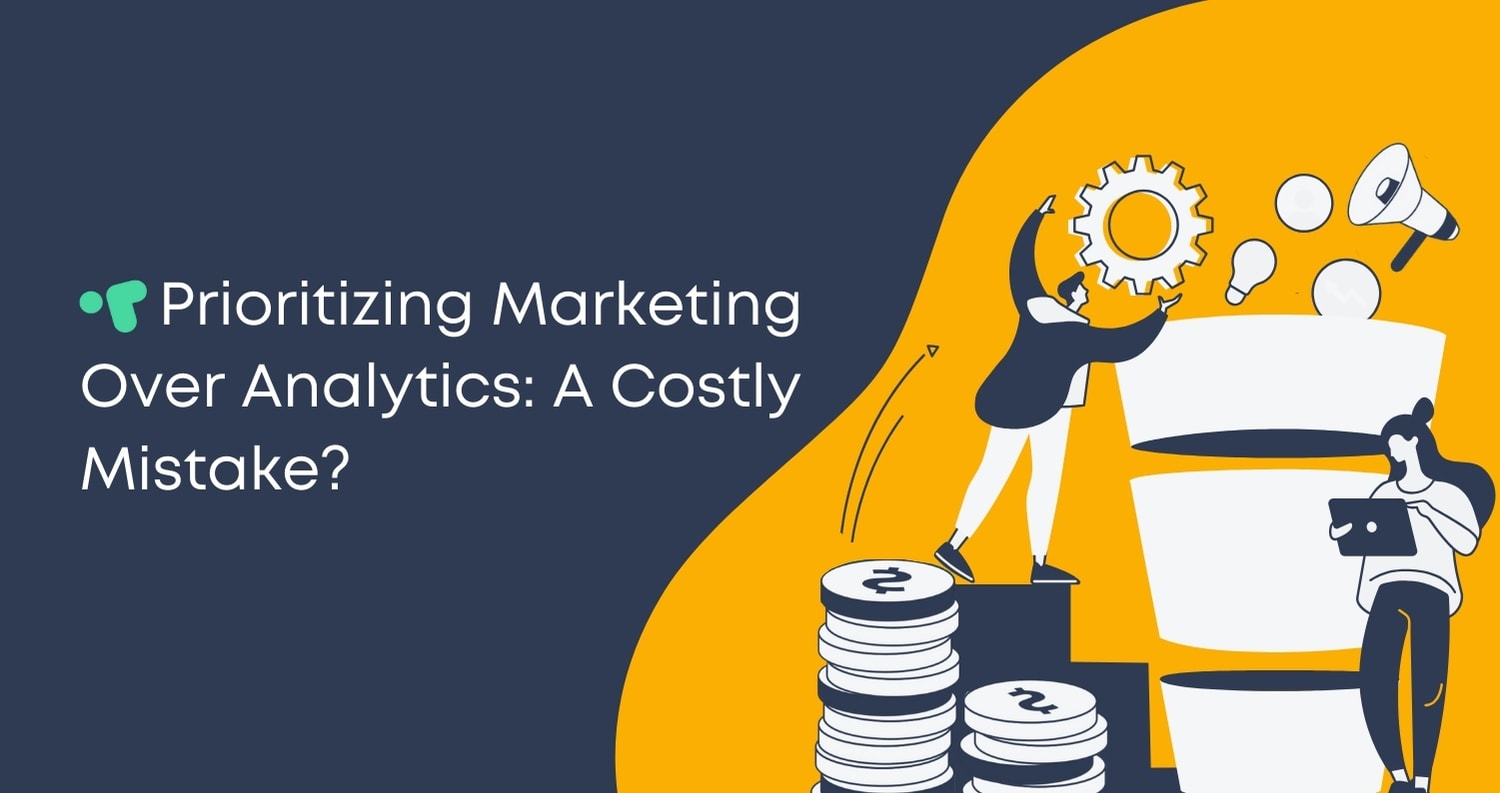Google has recently announced its delay in phasing out third party cookies on Chrome, pushing back the deadline to the second half of 2024. However, in a world where privacy is becoming a must after decades of consumer mistrust, you will need trustworthy ways to understand customer behavior and yet satisfy your customers’ need for protection and your marketing goals. That’s why developing a strategy to better leverage your first party data is key if your want to be prepared for this inevitable death.
Table of Contents
But why is Google killing off third party cookies?
The end of third party cookies will reshape the digital advertising landscape, setting a real challenge for those marketers and advertisers who have thrived on third party data to track users across the web.

This is what Justin Schuh, former Engineering Director of Chrome’s Security and Privacy, wrote in a blog post back in 2020; a stand towards user privacy that other browsers such as Firefox and Safari had already done in 2019 and 2020 respectively to protect their users by blocking third party cookies by default.
So why is there such a hustle with Chrome’s decision, then?
Well, Chrome might not be the first browser to phase out third party cookies, but it is the biggest. Chrome controls more than 60% of the global web browser market share, something that makes it account for more than half of all the web traffic worldwide.
Thus, the search giant’s privacy efforts will not only mark the end of this notorious tracking technology, but it will also have a massive impact as it is now the main source of consumer data for the MarTech industry.

The end of data collection?
If you are already preparing yourself for a post-cookie era, take a breath. The end of third party cookies might bring some changes, but there are plenty of delicious cookies out there that are - and will remain- very much alive.
To say it in other words, browsers will be just kicking out the creepy flavor from the cookie party, but this will not involve by no means the end of collecting relevant user behavior data.

Let’s dive into the 2 other delicious types of cookies that will help you leverage less intrusive strategies for your next marketing and advertising campaigns.
Zero and First Party Data (AKA Mrs. Party Favorite Sons)
Zero and First Party cookies are very much alike and yet, have nothing to do with their triplet, the black sheep of the family.
Unlike third party data, where you collect data that you do not own and that does not have much value by itself, as it can be outdated or contain errors, Zero and First party data is collected from the most reliable source: your customers.

Zero party data refers to the information that customers share with a brand voluntarily and intentionally, something that can be done through engaging quizzes or surveys where customers are allowed to take conscious and informed decisions about the information they are giving (purchase intentions, personal contexts, etc.).
A win-win for both the marketer of the brand and the user who is navigating through their website, as users can immediately see something in return for giving up their information, which contains everything a marketer needs to know to push them with personalized ads and a smooth journey that perfectly match the users’ needs to convert them into paying costumers.
On the other hand, first party data refers to the information that a brand collects from its customers while interacting with its service or buying products. It includes customers’ behavior and preferences insights such as website visits, mobile app activity, customer purchases, survey responses, or email interactions.
For example, have you ever wondered why certain webpages always remember your login information, your language preferences, the items in your cart, or other key things that make your user experience so easy and smooth? Now you know why: they are using first party cookies to remember these basic details.
First party data is very important because it is used to understand your customers and enhance their experiences when using your product, allowing you to offer a better product in the long run. For example, if consumers add a product of your brand to their chart, you can create personalized advertisements to encourage them to complete their purchase (e.g: inform them when this product is on sale, etc.).

Final thoughts: The party has just begun
After all, as privacy laws continue to arise and browsers are taking a stand forward in user privacy protection policies, and considering that millions of internet users are now using ad blockers, the MarchTech industry will need to come up with less intrusive alternatives to understand their customers' behavior.
Here are some steps you should follow to mitigate the impact of Google’s decision:
Step 1: Start by understanding your exposure.
Step 2: Develop a roadmap to mitigate the risk and eliminate the dependency on third party cookies as much as possible. A key part of the cookie mitigation roadmap will be developing a strategy that enables you to rely primarily on first party data assets.
Step 3: With this renewed emphasis on first party data, start developing a strategy to better leverage your first party that ensures that:
- You are collecting the relevant customer interactions for your business
- You are protecting your customer behavior data
- You can trust the quality of the data you are collecting
First party data might be collected from the most reliable source: your customers. However, if your business knowledge about customers is broken and based on bad data, the data-driven decisions you make out of these insights will be inaccurate.
Trackingplan offers a fully automated QA solution that ensures your first party data is always trustworthy, accurate, and actionable. This way, you can ensure the quality of your data and rely on it to guide your business.
To learn more about how you can protect your first party data to leverage its full potential, check out this article.
When used correctly, first party data can be a goldmine for your brand. To ensure your company doesn’t fall prey in the process of unlocking its full potential, get started today to experience the benefits of Trackingplan first-hand.
For more information, you can always contact our team.












.png)


